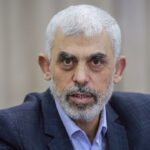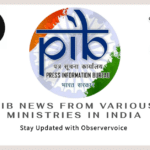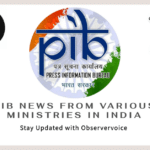Paraguay National Day, also known as Independence Day, is a public holiday in Paraguay that is celebrated annually on May 14th. It marks the country’s independence from Spanish colonial rule, which occurred on 14 May 1811.
Every year, Google celebrates Paraguay National Day. The majority of Paraguay’s ethnic population is a combination of indigenous Guaraní ancestry and those of European, mostly Spanish, descent. This fusion of cultures is reflected in the traditional embroidered lacework introduced to Paraguay by the Spaniards, known as ñandutí (Guaraní for “spider web”), and among the linguistics of the Paraguayan populace, many of whom speak both Guaraní and Spanish.
In honor of the national holiday and its rich culture, the Paraguayan tricolor flag flies high across the nation. Tthe flag of Paraguay is one of the world’s few national flags with different emblems on either side. In the center of one side is the Paraguayan coat of arms, and on the opposite, the treasury seal with the national motto: “Paz y justicia” (“Peace and Justice”).
History of Paraguay National Day
Paraguay is a landlocked country in South America, bordered by Brazil to the east, Argentina to the south and west, and Bolivia to the northwest. Before the arrival of Europeans, the territory was inhabited by various indigenous peoples, including the Guarani, who still make up a significant portion of the population today.
The first Europeans to arrive in Paraguay were Spanish explorers, who established a settlement in 1537. The territory became part of the Viceroyalty of Peru and later the Viceroyalty of the Rio de la Plata, with its capital in Buenos Aires. Paraguay remained a relatively isolated and economically backward region under Spanish rule, with most of its population consisting of indigenous peoples and mestizos (people of mixed European and indigenous ancestry).
In the 19th century, Paraguay underwent a period of transformation, with the establishment of the junta in 1808 and the subsequent struggle for independence. Following independence, Paraguay was ruled by Dr. Jose Gaspar Rodriguez de Francia, who established a dictatorship and implemented a series of reforms aimed at modernizing the country. This period of authoritarian rule lasted until 1840, when Francia died and was succeeded by Carlos Antonio Lopez, who continued the modernization efforts and established friendly relations with foreign powers.
Paraguay’s modern history has been marked by political instability, including a devastating war with Brazil, Argentina, and Uruguay in the late 19th century, and a period of military rule in the mid-20th century.
Significance of Paraguay National Day
Paraguay National Day holds immense significance for the Paraguayan people as it marks their liberation from Spanish colonial rule. The declaration of independence symbolizes the country’s commitment to self-determination, freedom, and the pursuit of national sovereignty. The day serves as a reminder of the struggles and sacrifices made by the founding fathers and the people of Paraguay to establish an independent nation. It is also an opportunity for Paraguayans to celebrate their cultural heritage, unity, and national identity.
Events at Paraguay National Day
There are several events that mark the national day:
- Parades: Colorful parades take place in major cities and towns across the country, featuring marching bands, traditional costumes, floats, and various cultural displays.
- Military Demonstrations: The Paraguayan Armed Forces perform military drills and demonstrations to showcase their strength and honor the nation’s independence.
- Folklore and Traditional Dances: Folk dance groups perform traditional Paraguayan dances, such as the polka and the bottle dance, showcasing the country’s rich cultural heritage.
- Fireworks: Spectacular fireworks displays light up the night sky, adding a festive touch to the celebrations.
- Cultural Exhibitions: Museums, galleries, and cultural centers organize special exhibitions that highlight Paraguay’s history, art, and traditions.
Observer Voice is the one stop site for National, International news, Editor’s Choice, Art/culture contents, Quotes and much more. We also cover historical contents. Historical contents includes World History, Indian History, and what happened today. The website also covers Entertainment across the India and World.
Follow Us on Twitter, Instagram, Facebook, & LinkedIn










